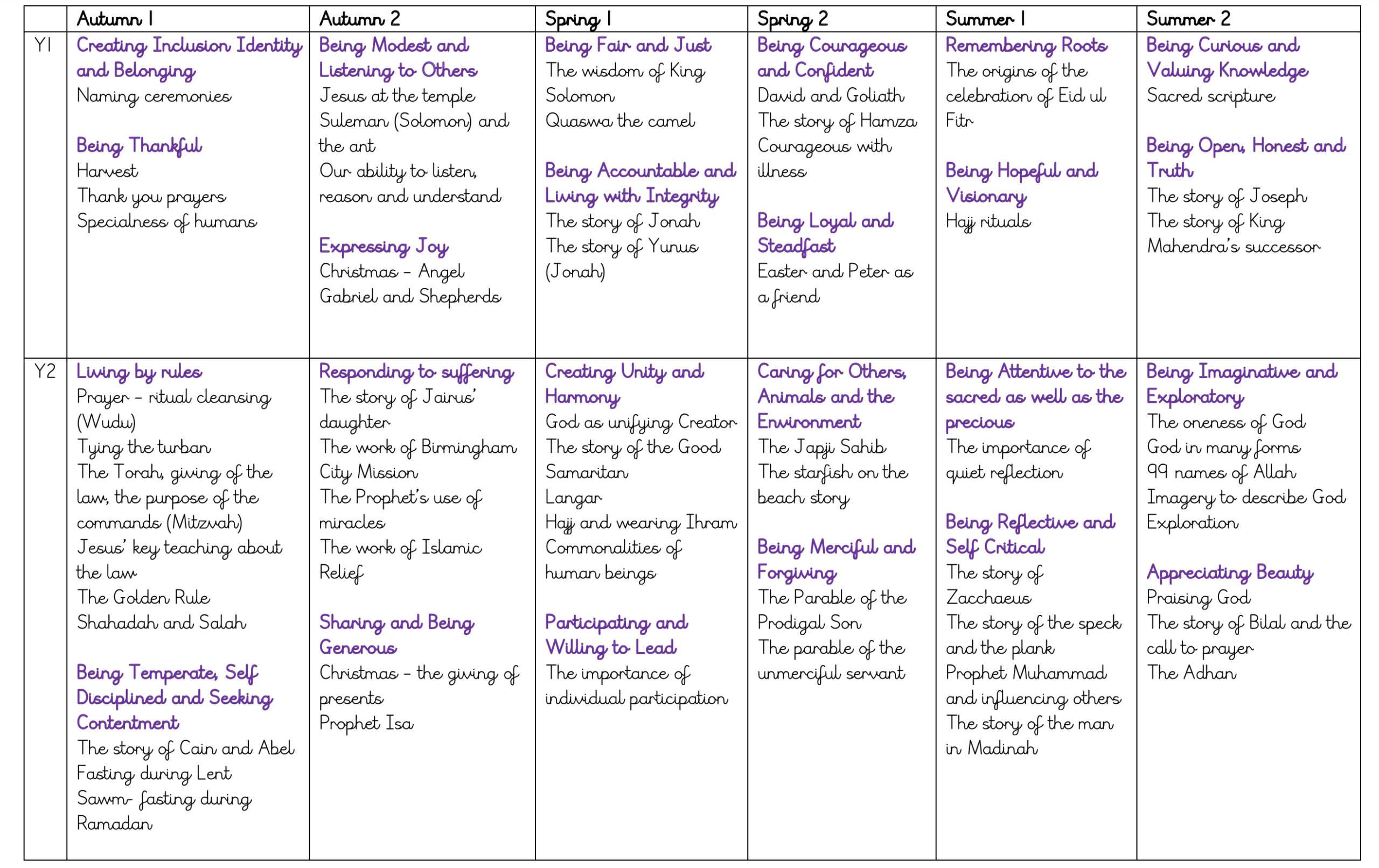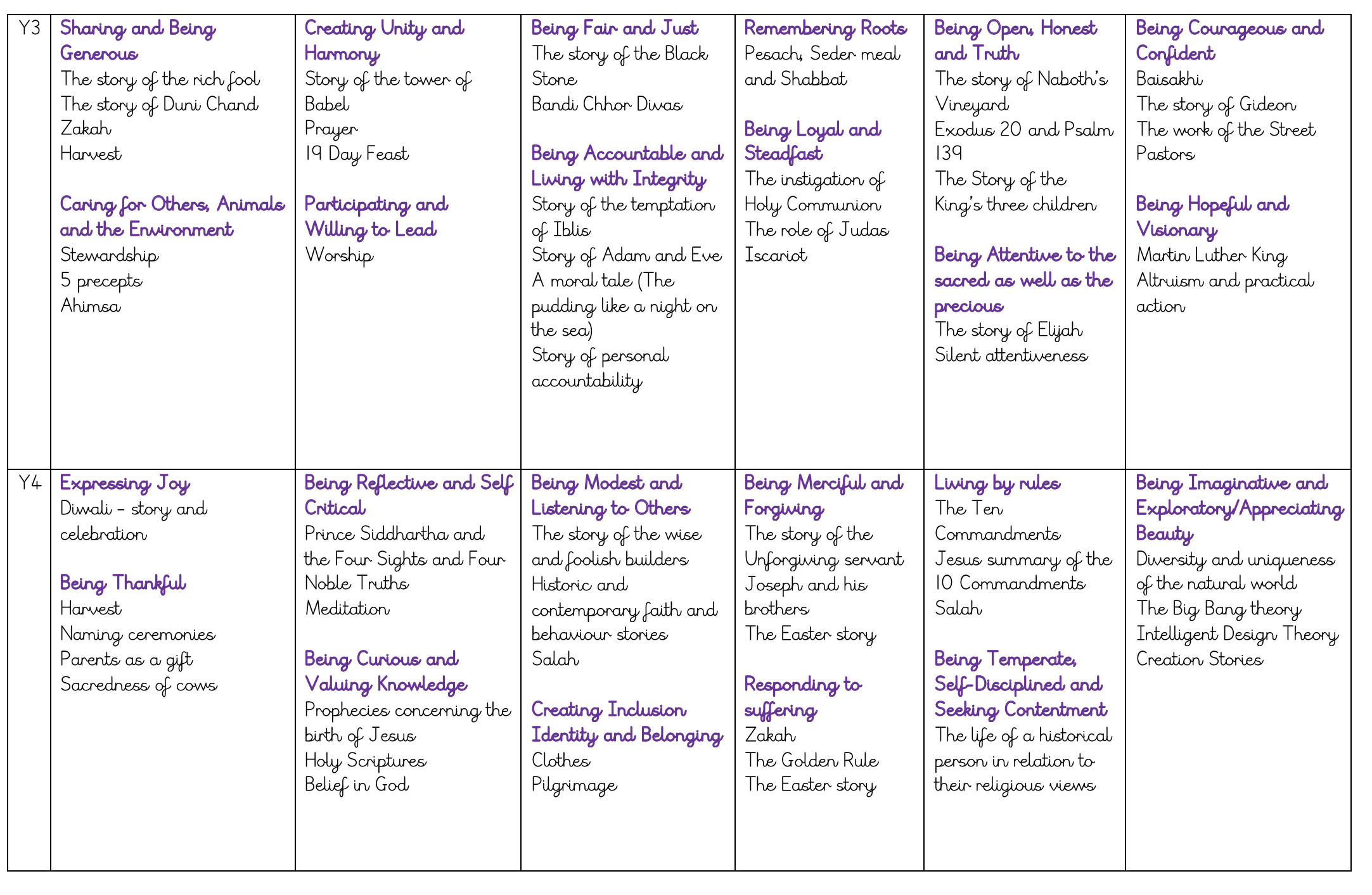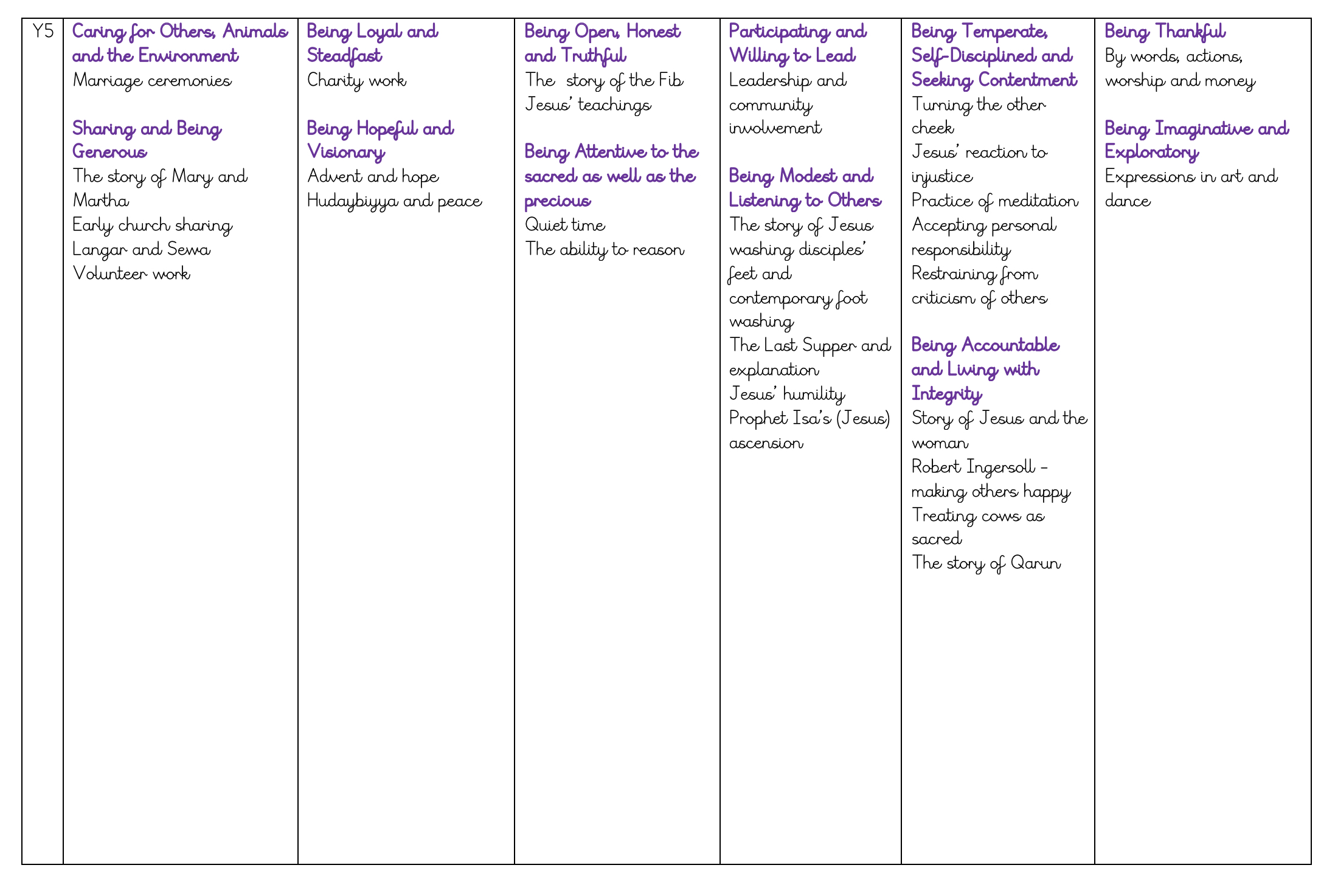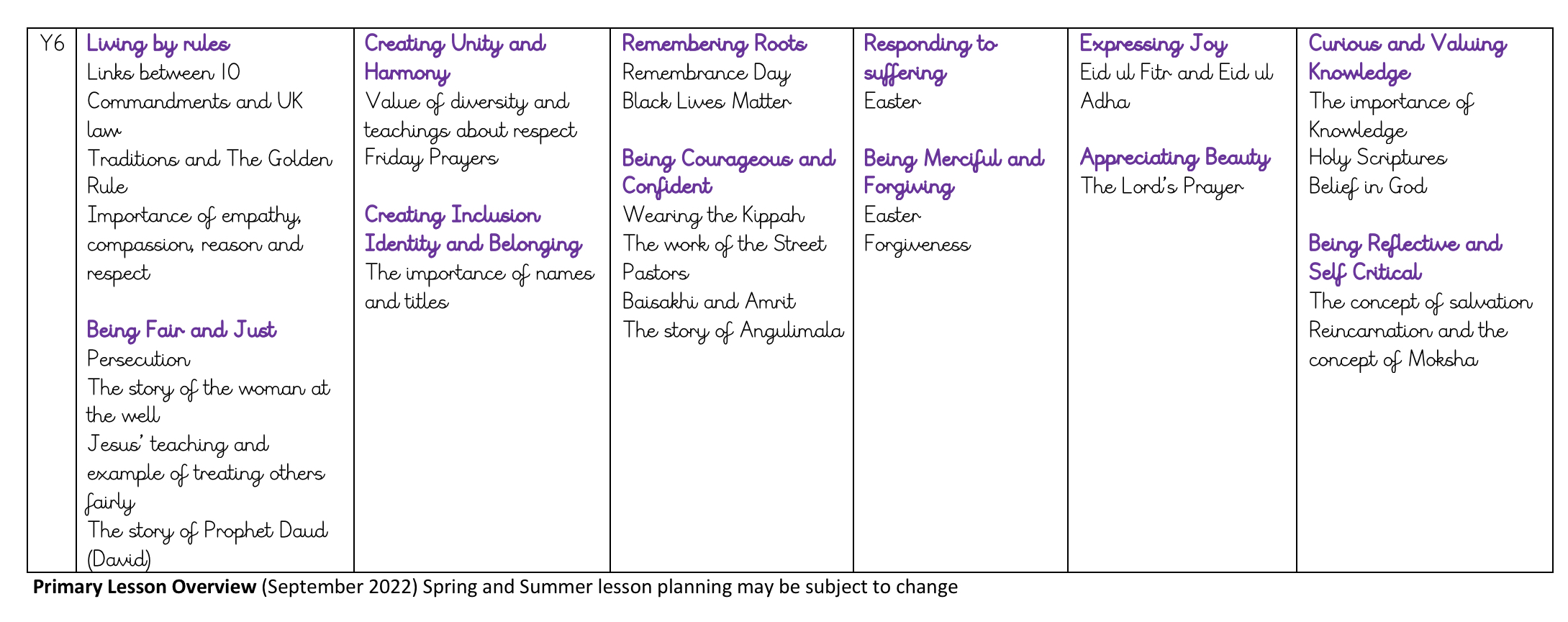Religious Education
The intent of the ATLP and Slade Religious Education curriculum is closely aligned with the Birmingham agreed syllabus for Religious Education [updated, 2022].
The ATLP curriculum aims to provide children with a broad and academic programme that closely follows the National Curriculum.
Our provision is a coherent and carefully sequenced (knowledge engaged) curriculum based on the principles of cognitive science. There is a focus on the development of literacy and the application of acquired knowledge to ensure children access the curriculum at a depth to ensure a deep and enduring understanding in discrete subject areas.
The content and experiences within our curriculum are designed to accumulate and address the gaps in cultural capital of all our students in particularly the disadvantaged. Our extra-curricular offer supports our provision, with a focus within each subject thus helping to form stronger schemata for long term retention.
Purpose of Religious Education
Religion and beliefs inform our values and are reflected in what we say and how we behave. RE is an important subject in itself, developing an individual’s knowledge and understanding of the religions and beliefs which form part of contemporary society. Religious education provokes challenging questions about the ultimate meaning and purpose of life, beliefs about God, the self and the nature of reality, issues of right and wrong, and what it means to be human. It can develop pupils’ knowledge and understanding of Christianity, of other principal religions, other religious traditions and worldviews that offer answers to questions such as these.
RE also contributes to pupils’ personal development and well-being and to community cohesion by promoting mutual respect and tolerance in a diverse society. It offers opportunities for personal reflection and spiritual development, deepening the understanding of the significance of religion in the lives of others – individually, communally and cross-culturally.
Pupils are offered a holistic view of religious traditions, their beliefs, their expressions and practical actions.
The aims of the ATLP Religious Education curriculum is to:
- Appreciate the roots and history of religious faith in Britain and the wider world.
- Study key religious beliefs and practices, the origin and context of sacred writings, persons and institutions.
- Develop an understanding of religious views on, and attitudes to, animals and the environment, and the importance and implications of studying the natural world.
- Explore significant and influential religious fiction, narratives, events and places.
- Engage with, and question, events, activities and expressions, the significance of which is both religious and cultural.
- Study and respond to religious positions on human relationships, marriage, human sexuality and the family.
- Learn how faith traditions have encountered and are engaging with each other in history and contemporary Britain.
The aim of the curriculum at Slade
The role of RE in our school is to provide children with an appreciation and awareness of world religions and to be able to embrace the diverse community that they live in. We want our children to be able to articulate clearly their personal beliefs, ideas, values and experiences, whilst respecting others. One way that we do this is by ensuring that children are exposed to range of high quality learning materials including both primary and secondary resources. Whilst exposing children to a wide range of religions, we ensure that the RE curriculum is ambitious and designed to give all learners the knowledge they need to succeed.
At Slade, we follow the Birmingham Agreed Syllabus for Religious Education 2022, it focuses on the development of the 24 dispositions, or values. The dispositions both define and promote a flourishing personal, spiritual and moral character. As they move through their education, children will revisit each of the 24 dispositions with increasing depth. We will encourage children to think about, and act upon, a growing undertaking of their own faith or viewpoint, whilst being respectful of others.
The syllabus includes the nine religious traditions recorded to have significant representation within Birmingham: Bahá’i, Buddhism, Christianity, Hinduism, Islam, Jainism, Judaism, Rastafari and Sikhism, and established non-religious worldviews such as Atheism, Humanism and Secularism.
Throughout each unit, retrieval practice and the exploration of words are used to embed the knowledge being taught and to develop their long term memory. High quality reading opportunities are planned into our RE curriculum to promote high standards of reading and enhance their learning. We also provide the children with knowledge organisers, which contain the key knowledge being taught and allows the children to revisit and refer back to them.
RE at Slade offers our children the means by which to understand how other people choose to live and to understand why they choose to live in that way. RE is invaluable in an ever changing and diverse world.
We aim to meet the guidance from the Birmingham Agreed Syllabus of:
Reception and Key Stage 1: 36 hours per year
Key Stage 2: 45 hours per year




